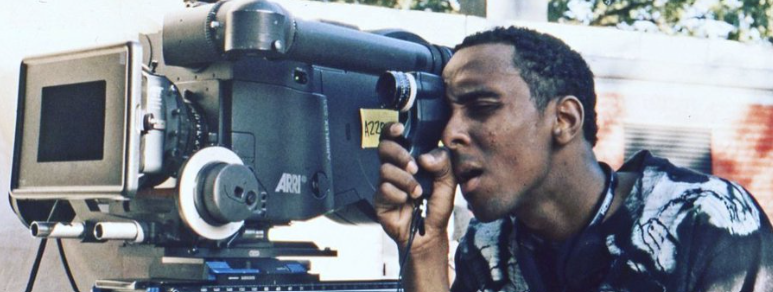People have talked for ages about the Great American Novel—that one perfect book that captures the heart of the American experience. But when it comes to movies, it’s harder to pin down. Still, every now and then, a film comes along that feels like it touches something essential— one that speaks to the contradictions, and dreams of the American experience.
On Saturday, Steven Spielberg honored Francis Ford Coppola with the 50th AFI Life Achievement Award. He remembered watching an early cut of “Apocalypse Now”—five hours long—alongside other filmmakers. “When the film ended, you asked us to tell you what we saw, how we felt. You invited all of us in, so one by one, we told you where we were lost and where we were found, and I sat there in awe, learning that leaving yourself open and searching was, in fact, your superpower.”
Then Spielberg said something that landed many headlines: “‘The Godfather,’ for me, is the greatest American film ever made […] Francis took what came before and redefined the canon of American film.”
So, what is “The Greatest American Movie”? It’s an impossible question—but also a necessary one. It’s not about naming a favorite. Hollywood’s tried to make it a thousand times—sometimes by accident. Maybe it really is “The Godfather.” If there’s a more American myth than immigration, assimilation, capitalism, and corruption wrapped into one, I haven’t seen it. Coppola didn’t flinch. In his world, the American Dream is bought with blood. We watch Michael Corleone, once a moral center, become a man whose quiet is more terrifying than any act of violence.
Then again, I consider “The Godfather Part II” to be slightly superior to the original because it deepens the narrative by masterfully weaving two parallel storylines: Michael Corleone's descent into cold isolation as he consolidates power, and a young Vito Corleone's rise from immigrant poverty to respected crime boss, brilliantly portrayed by Robert De Niro. This dual timeline structure adds emotional and historical depth, showing how the American Dream is corrupted across generations.
Coppola’s classics would have to contend with Hitchcock‘s “Vertigo,” a masterpiece of psychological depth, innovative storytelling, and profound influence on the art of filmmaking. After all, what is essential cinema without obsession, identity, and illusion?
“Singin’ in the Rain” can be considered a strong contender because it encapsulates the spirit of Hollywood’s Golden Age, celebrates American optimism, and showcases the innovation of the film industry during a pivotal moment in history. While other films may offer deeper dramatic narratives, “Singin’ in the Rain” stands out as a joyful, technically masterful tribute to American filmmaking itself.
Of course, it’s hard not to mention “Citizen Kane.” How could we not? It’s the story of a man who gains everything but loses himself. Sure, it’s about newspapers, but it’s also about the mystery of the human soul. It mirrors a country obsessed with success, but always chasing some deeper meaning. Still, “Kane” keeps you at arm’s length—it’s brilliant, but guarded. It feels like a genius trying to shout down the world.
Then there’s “2001: A Space Odyssey.” No small towns. No speeches. But maybe it’s the Great American Movie just for sheer massive ambition, its leap into the unknown, and its reverence for the mystery of being alive. It doesn’t try to explain everything—it becomes the mystery. ‘2001’ blew past genre and touched something spiritual.
John Ford “The Searchers,” one of the greatest films ever made, encapsulates many of the themes central to the American experience: the frontier, racial tension, the quest for identity, and the uneasy transition from wilderness to civilization. Its influence on American cinema is profound, shaping the Western genre and inspiring filmmakers like Scorsese and Spielberg.
But then again, the Great American Movie doesn’t have to be epic. What about “Do the Right Thing”? One block in Brooklyn becomes the whole country—history, heat, race, anger, and fragile humanity. It ends in fire, not for show, but because it has to. You can also add into the equation a handful of 21st-century masterworks such as “Tree of Life,” “Mulholland Drive,” and “There Will Be Blood.
Then again, in 2025, it might be impossible to pin down "the great American movie" because of how vast, diverse, culturally wide-ranging each era has been; American cinema has evolved over the decades, from Westerns and noir to modern blockbusters and indie films, What resonates as deeply to one audience might feel exclusionary or irrelevant to another.






